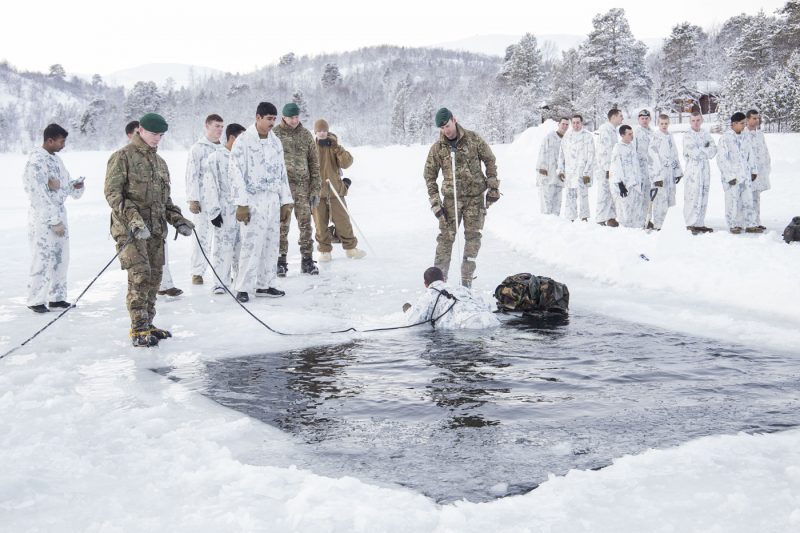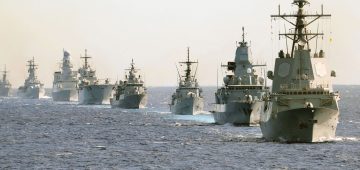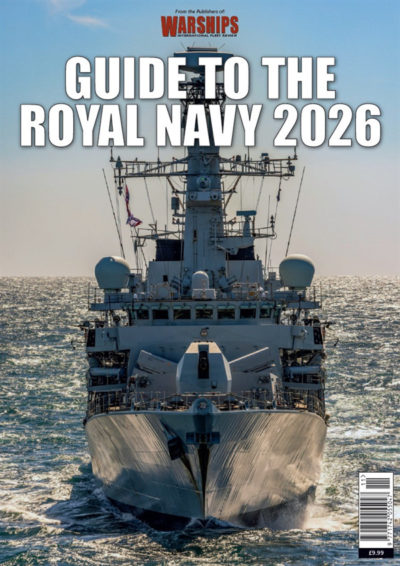
There’s a new sheriff in town and some European nations don’t like being told they must spend more on their armed forces.
The USA (which devotes 3.3 per cent of its GDP to defence) currently pays 73 per cent of the cost of maintaining NATO’s front line operational capabilities. Yet some of its members have reacted adversely to a perfectly reasonable demand by US Secretary of State for Defense James Mattis – the new sheriff – that they dig deeper to meet the alliance’s minimum spending level of two per cent GDP.
Germany (currently devoting 1.2 per cent of GDP to its armed forces) has suggested that by welcoming in Syrian refugees – and the displaced persons of other countries wrecked by recent wars – it is shoring up the West’s collective defence and need not spend more. This is a curious logic for a leading NATO nation that has a newly resurgent and aggressive Russia right on its doorstep and, with the exception of its excellent (if small) navy, fields patchy military forces.
The Americans, British and also the French are entitled to point out to Berlin that it is the extremely expensive nuclear deterrent submarines of their navies that protect Germany (and the rest of the West) from nuclear coercion at the hands of Russia (or anyone else with a yen for issuing such threats).
Germany should also be reminded that the heavy lifting in the campaign to stabilise Afghanistan came from the Americans, British and Canadians (the latter spending just one per cent of GDP on defence). Germany’s own troops (and those of some other NATO nations) policed zones where the threat was much less intense. The Germans were initially notoriously ill-prepared and equipped for counter-insurgency warfare. While we understand some of Germany’s ingrained sensitivity about creating large military forces, surely nobody would fear a repeat of the 20th Century?

It is, however, high time that Europe as a whole started paying its way for the kind of collective defence that NATO provides. It is so effective and strong that Russia (5 per cent of GDP on defence) vociferously tries to undermine the alliance’s cohesion whenever and wherever it can.
Far from being a Cold War construct and irrelevant – as the Russian foreign minister claims – NATO remains the best bulwark against the Kremlin’s sinister new imperialism. It does need boosting, however, to ensure the Russians do not even think about further territorial grabs.
Currently the armed forces of most NATO nations are in a less than satisfactory state, with either key capabilities degraded and threadbare, or entirely missing – all of which requires the USA to fill in the gaps. Even the British – one of those NATO members that claims it spends the two per cent GDP (though an independent survey suggests the reality is 1.9 per cent) – are playing games with financial commitment. They class some elements of humanitarian aid and even military pensions as ‘defence spending’.
Meanwhile, Defence Secretary Sir Michael Fallon passes the buck on securing proper levels of defence spending by saying it is down to Services chiefs to carve up their small pies. This led to his embarrassingly evasive behaviour on a radio news programme where he suggested a possible cut to the Royal Marine Commandos – one of the UK’s key rapid reaction military formations – was a matter purely for the First Sea Lord.
It was not Fallon’s greatest hour and a worrying sign of how out of touch the government led by Theresa May is with both the poor state of the UK’s defences already and the true scale of rising threats. With China set to increase the size of its own marine infantry to anywhere between 20,000 and 100,000 men and women – and the US Marine Corps bigger than the entire UK military – many are wondering what planet Michael Fallon and Theresa May live on where they can cut the UK’s own amphibious warfare forces so carelessly.
How will the UK play its important role in securing NATO’s northern flank if it does not have the Royal Marines and assault ships so essential to such operations? Amid Brexit negotiations, it is surely worth the P.M., Defence Secretary and even the Foreign Secretary applying themselves to answering some important questions about the defence of the realm.

Theresa May has scoffed at the idea of war with Spain over Gibraltar, but underpinning Western security in the Arctic – where the Russians are making moves to secure control militarily and economically – is worth some serious thinking and not buck-passing on naval capability decisions. It is the Government’s job to ensure the UK and its interests are properly defended (including adequately funded) and shunting the blame to the First Sea Lord is nothing more than moral cowardice and dereliction of duty to the State.
-
This is a revised and edited version of a commentary published in the April edition of WARSHIPS IFR.






Comments
Sorry, comments are closed for this item